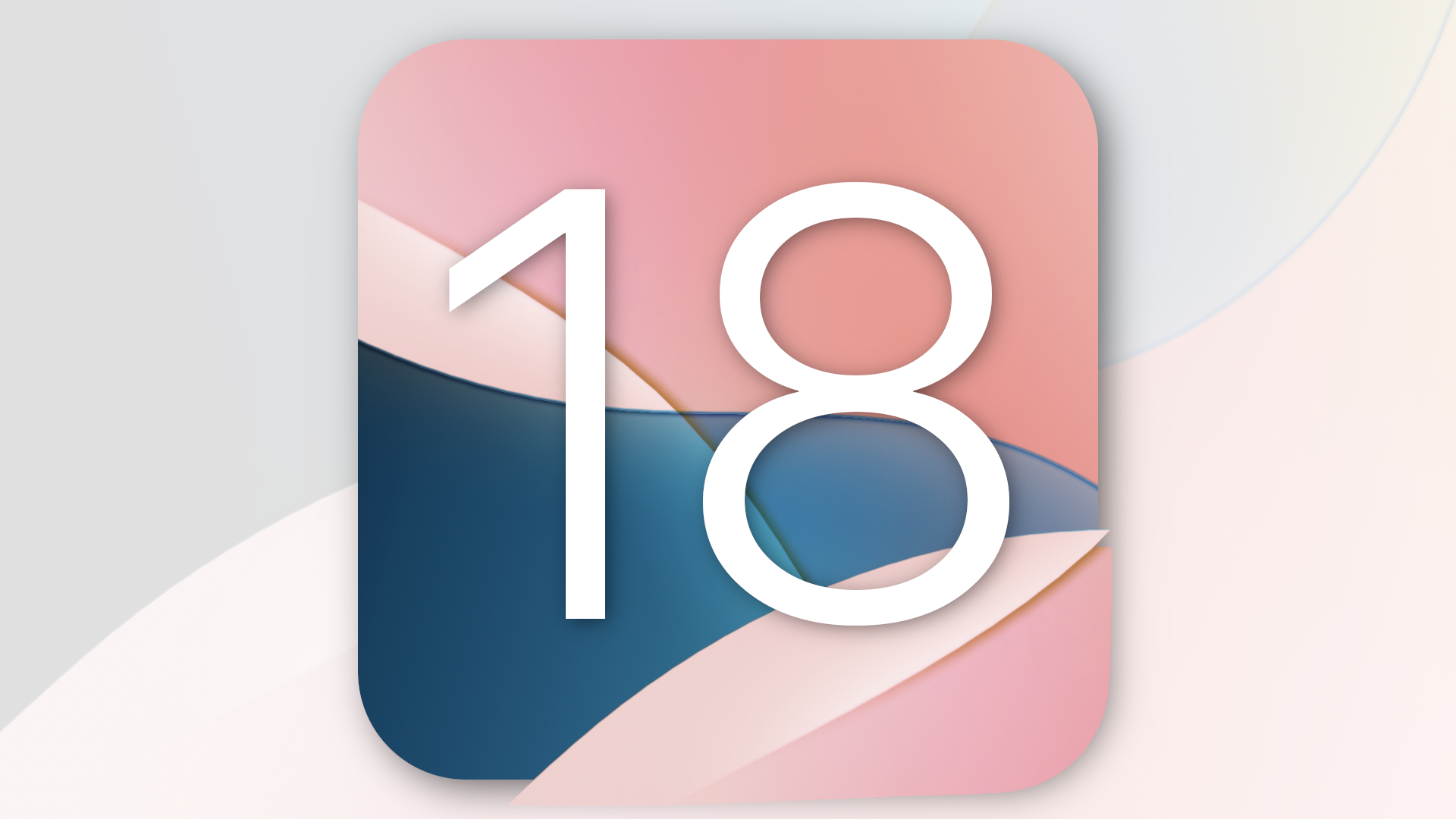
Apple's WWDC has a host of software updates to share with us, including the latest milestone operating system (OS) release for iPhone in iOS 18.
iOS 18 includes a host of updates and features and all-new ways of customizing your iPhone to make the iOS experience more tailored and personalized to you than ever before.
Privacy is also a major factor for the upcoming iOS 18 release, with Apple's approach to AI in Apple Intelligence being a standout marker of how the company has preserved its user-privacy focus.
However, while we now know what to expect from iOS 18, we will need to know which iPhones will support the latest update and when we can expect them. Let's dive into what we know so far and find out.
- Read more: Apple WWDC 2024 recap
iOS 18: Expected release date
Apple hasn't yet confirmed when iPhone owners will be able to upgrade to the full version of iOS 18, but we can look to previous iOS release dates to gain better insight on when to expect this year's update.
The last five milestone iOS releases (from iOS 13 to iOS 17) were all released in the month of September, with the latest three releases arriving in the second or third Monday of that month.
- iOS 13 release date: Thu. September 19, 2019
- iOS 14 release date: Wed. September 16, 2020
- iOS 15 release date: Mon. September 20, 2021
- iOS 16 release date: Mon. September 12, 2022
- iOS 17 release date: Mon. September 18, 2023
With these dates in mind, we'd expect Apple to follow suit and release iOS 18 at some point in September — likely the second or third Monday of the month. This places the most likely release date for iOS 18 on Monday, September 9, 16, or 23.
However, prior to that release, iPhone users will be able to join the developer and public betas for iOS 18 on supported models.
The iOS 18 developer beta is already live and available to download for those in the Apple Developer program, which requires a $100 annual fee to join. However, the upcoming public beta is free to all users signed up for Apple's Beta Software Program. While there's no confirmed date for the release of the public beta, it typically releases at some point in July.
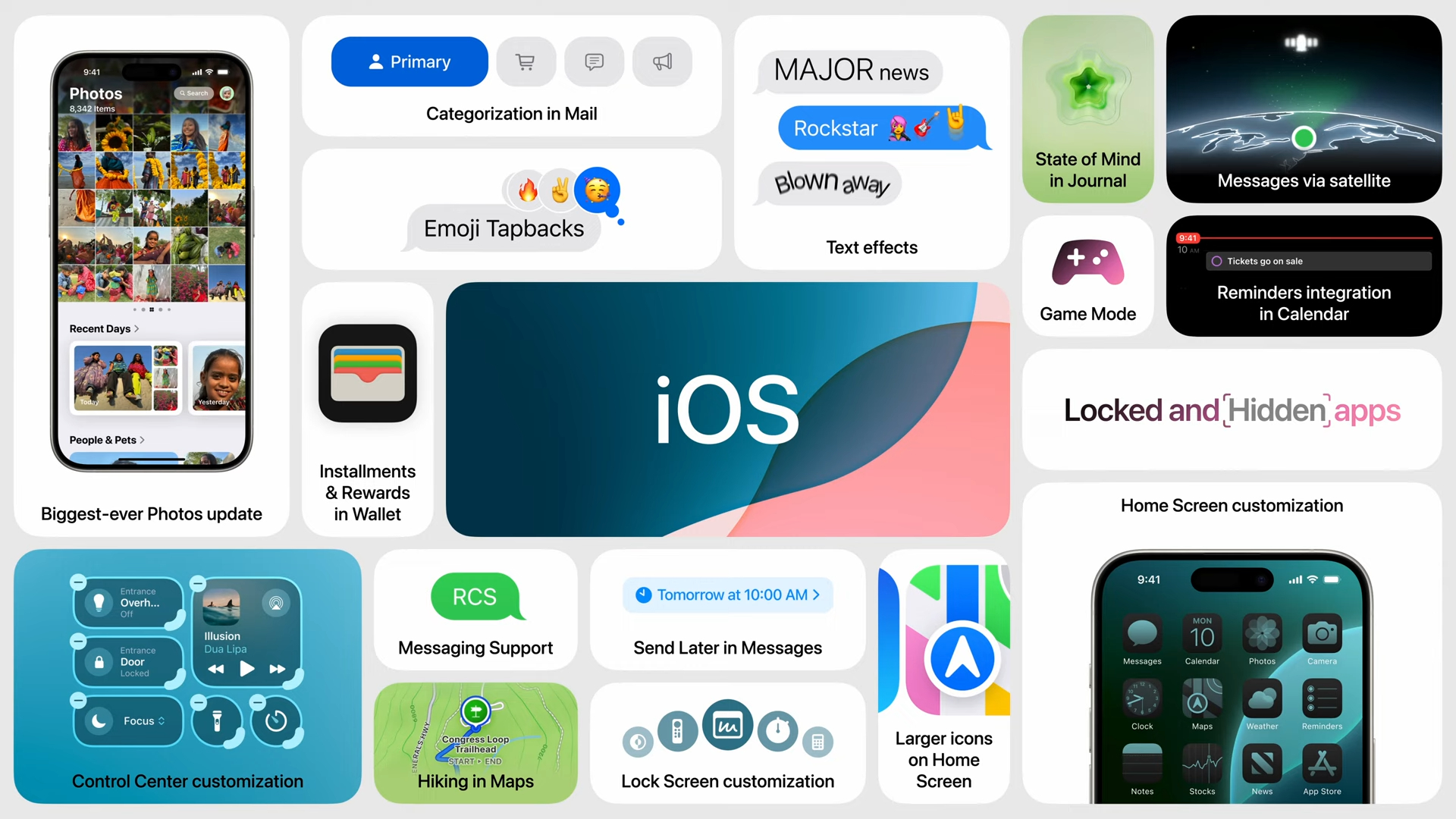
iOS 18: Supported iPhones
Apple has confirmed which iPhones will support the latest iOS update in a recently published iOS 18 preview. The following are the devices that will be eligible to download and upgrade to iOS 18 on release.
The minimum requirements for iOS 18 are iPhones outfitted with an Apple A12 Bionic chipset — which is outfitted with Apple's first Neural Engine (or NPU, Neural Processing Unit) capable of performance that measures in TOPS (Trillions of Operations Per Second).
This performance metric is a good indicator of how well each device will be able to run the on-device AI features announced to be a part of Apple Intelligence. While the A12 Bionic is only capable of up to 5 TOPS, the Neural Engine of the latest A17 Pro chipset found in the iPhone 15 Pro and Pro Max is capable of up to 35 TOPS of performance — similar to the NPU performance of Intel's Meteor Lake Core Ultra processors.
This points to the idea that earlier iPhone models that are eligible for the iOS 18 update will rely more heavily on Apple's Private Cloud Compute — which provides a cloud computing alternative for devices that aren't capable of completing an AI-assisted operation on-device.
iOS 18: Apple Intelligence
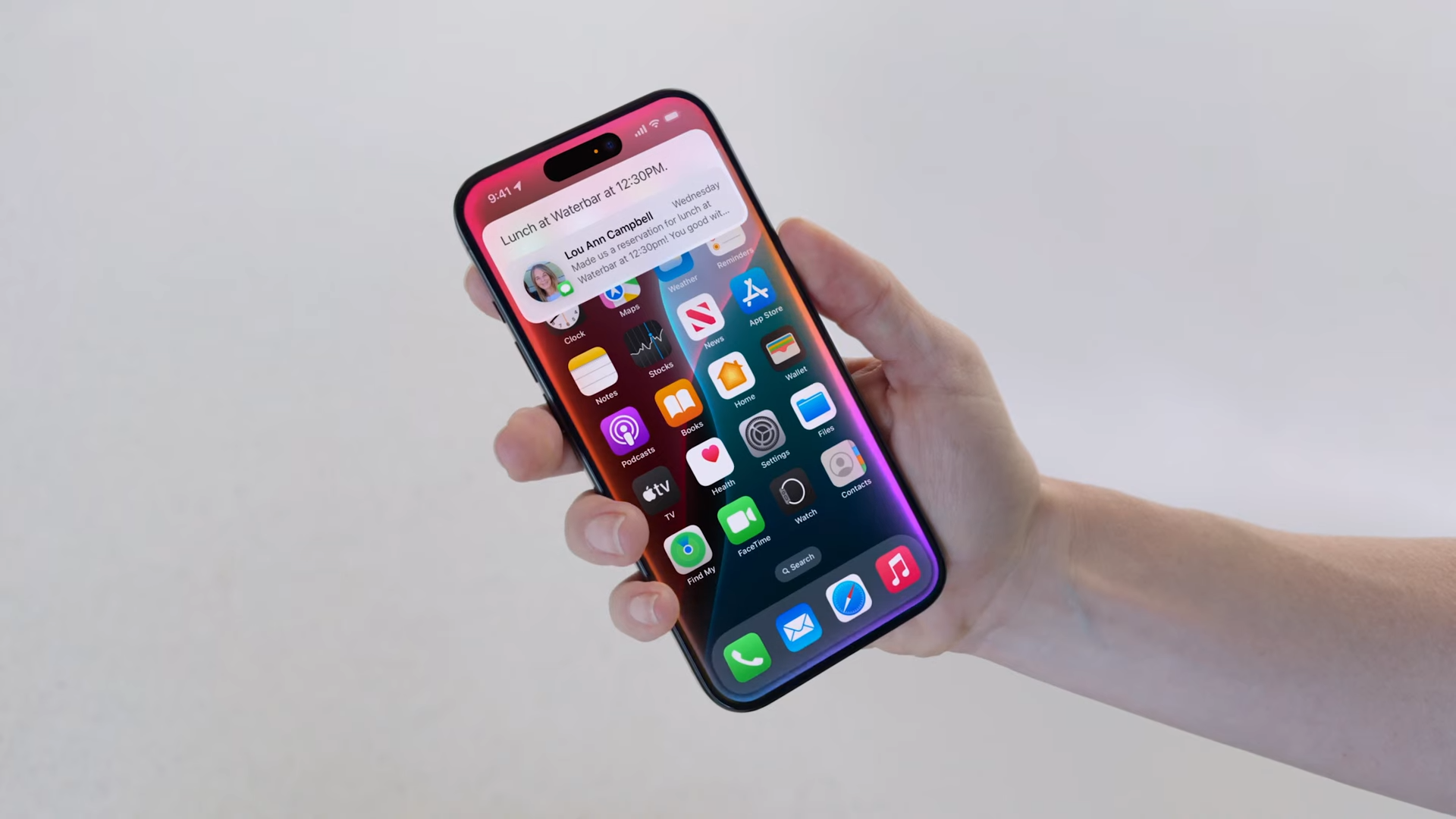
The highlight of iOS 18 is undoubtedly Apple Intelligence, Apple's new AI platform. It includes a host of new features and a long-overdue Siri update.
Some Apple Intelligence features will run on-device, meaning they won't require any data to leave your iPhone. However, in cases where your device isn't powerful to run a certain AI task, it will go to Apple's new Private Cloud Compute service, which will ensure none of your data is saved or compromised for the sake of AI.
Apple Intelligence will allow Siri to perform more complex tasks, recognize content on your iPhone's screen, and understand natural language better. It will also allow you to do things like generate text and images locally, generate custom emojis, tap into new photo editing features, streamline notifications, and use ChatGPT privately directly through your Apple devices.
The only drawback of Apple Intelligence is that Apple isn't going to release all of its features right away. According to Bloomberg's Mark Gurman, Apple is planning to roll out Apple Intelligence in stages throughout the rest of the year and into 2025. It will also be an opt-in beta feature in iOS 18, so make sure you manually opt in for it in iOS 18 (or the public beta).
iOS 18: Home screen customization
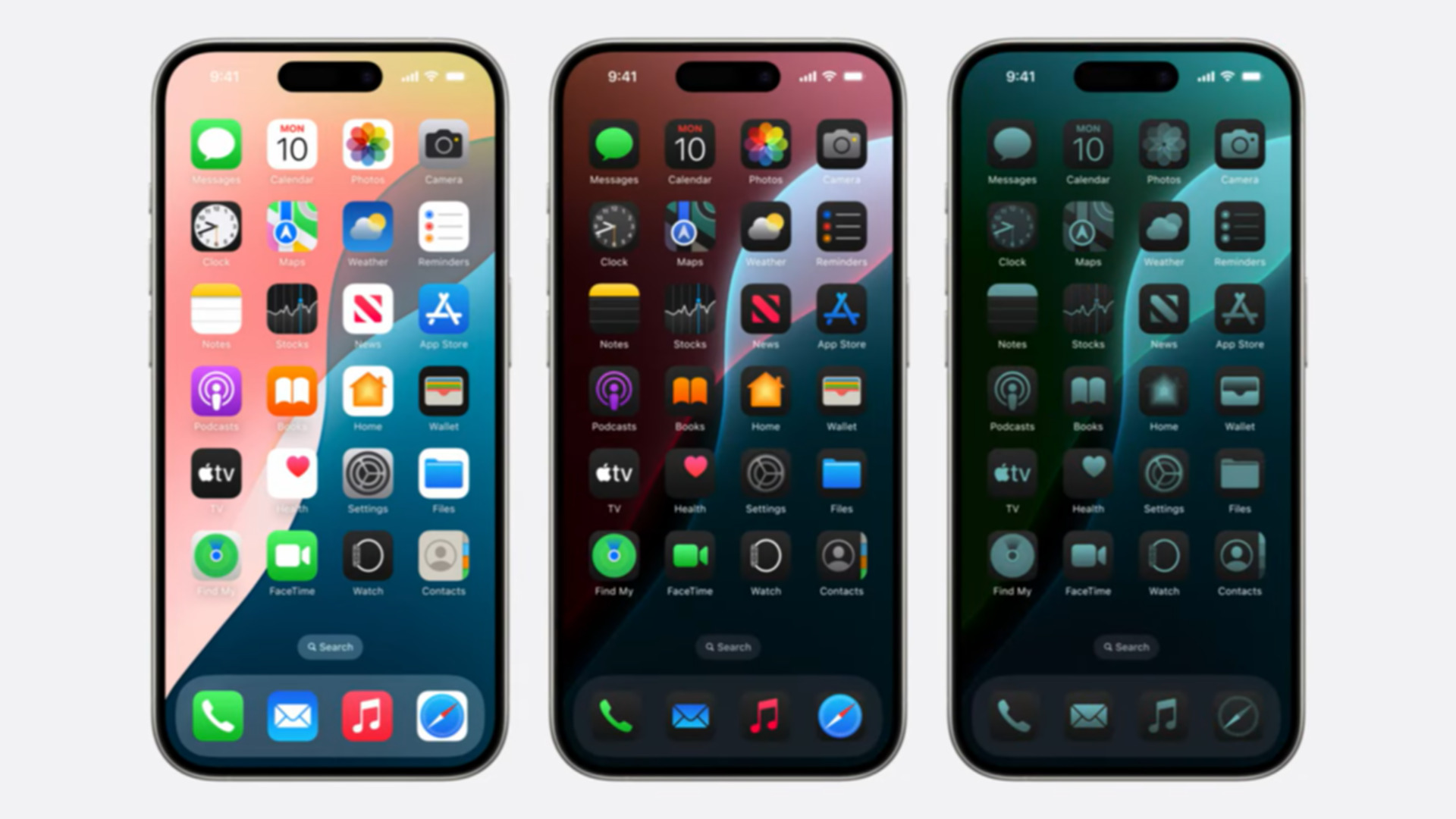
The main draw of iOS 18 is Apple Intelligence, but there are a handful of other new features worth noting. The first is home screen customization. On iOS 18, you will be able to place app icons anywhere on your home screen and recolor them using a new dark mode and color tints. Home screen customization has long been one of the main advantages of Android over iOS, but it looks like Apple is finally leveling that playing field.
When you're organizing your apps in iOS 18, you will also now be able to put them in a locked "hidden apps" folder and lock individual apps.
The Control Center is getting more customization in iOS 18, as well. There will be a new Controls Gallery with more control widgets to choose from. Apple is also allowing third-party app developers to make their own controls to add to the gallery. Likewise, you'll finally be able to customize the controls on the lock screen so you can swap out the camera and flashlight for any other control you like.
iOS 18: Photos app redesign
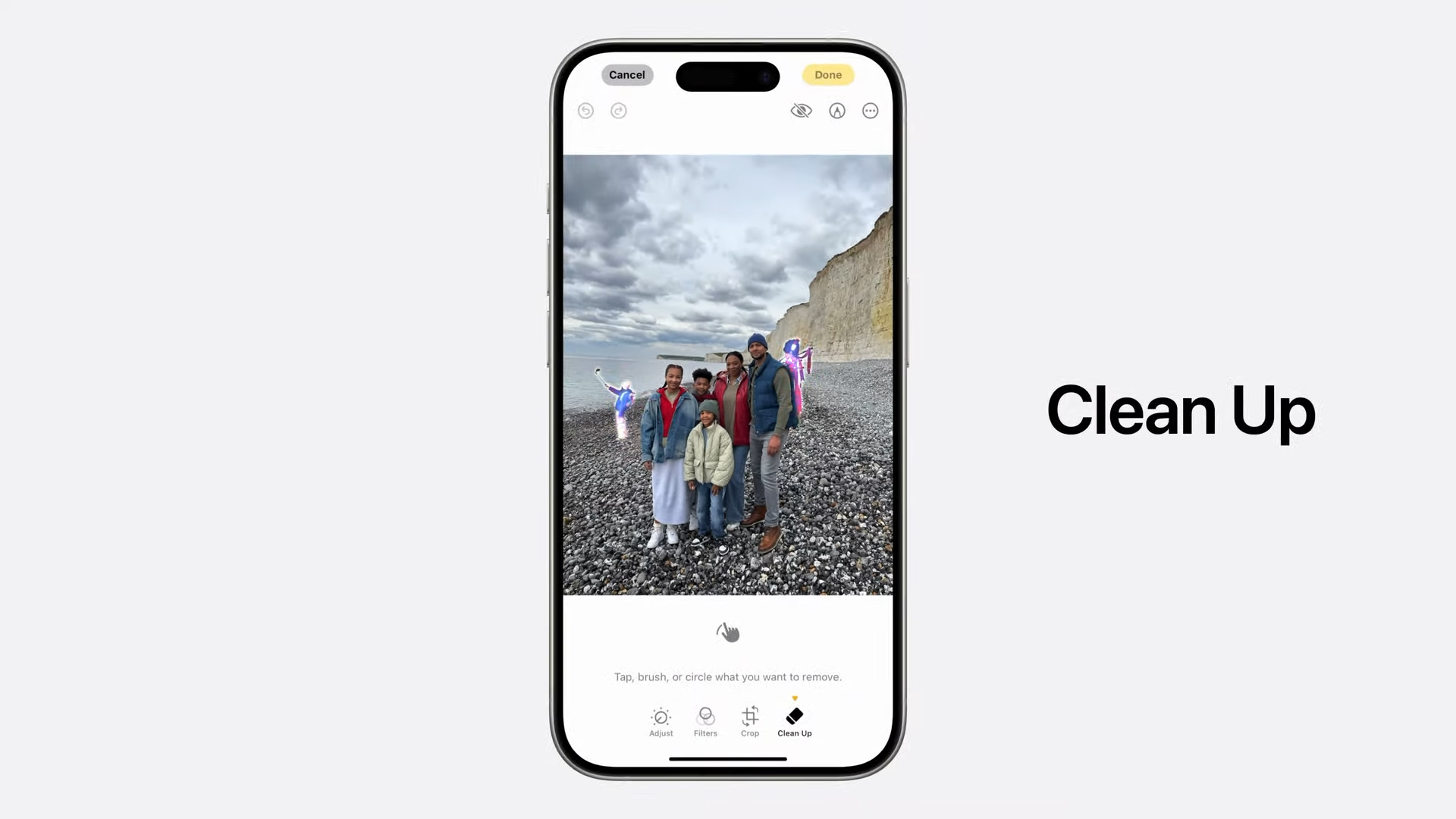
Even if you don't change up your home screen or Control Center, you won't be able to miss the redesigned Photos app in iOS 18. It's the biggest design update to the app in a long time with a completely new layout. The Photos app will now have a single view with a library grid at the top and albums and collections below.
"Collections" are a new feature that functions like automatically-generated albums with themes like "trips" and "today." The Photos app will use AI to identify photos to put in these albums and update them, such as with the "today" Collection.
There will also be Apple Intelligence features coming to the Photos app in iOS 18, but some may not roll out until late 2024 or early 2025. These include the Cleanup tool and Memory Movies.
The Cleanup tool is effectively Apple's version of Google's Magic Eraser tool. It uses AI to remove unwanted objects or blemishes from photos. The Memory Movies feature uses AI to generate videos for you featuring photos for your library, a helpful feature for anyone who's ever wanted to make a custom slideshow without getting into the complexity of video editing apps.
iOS 18: Messages app update
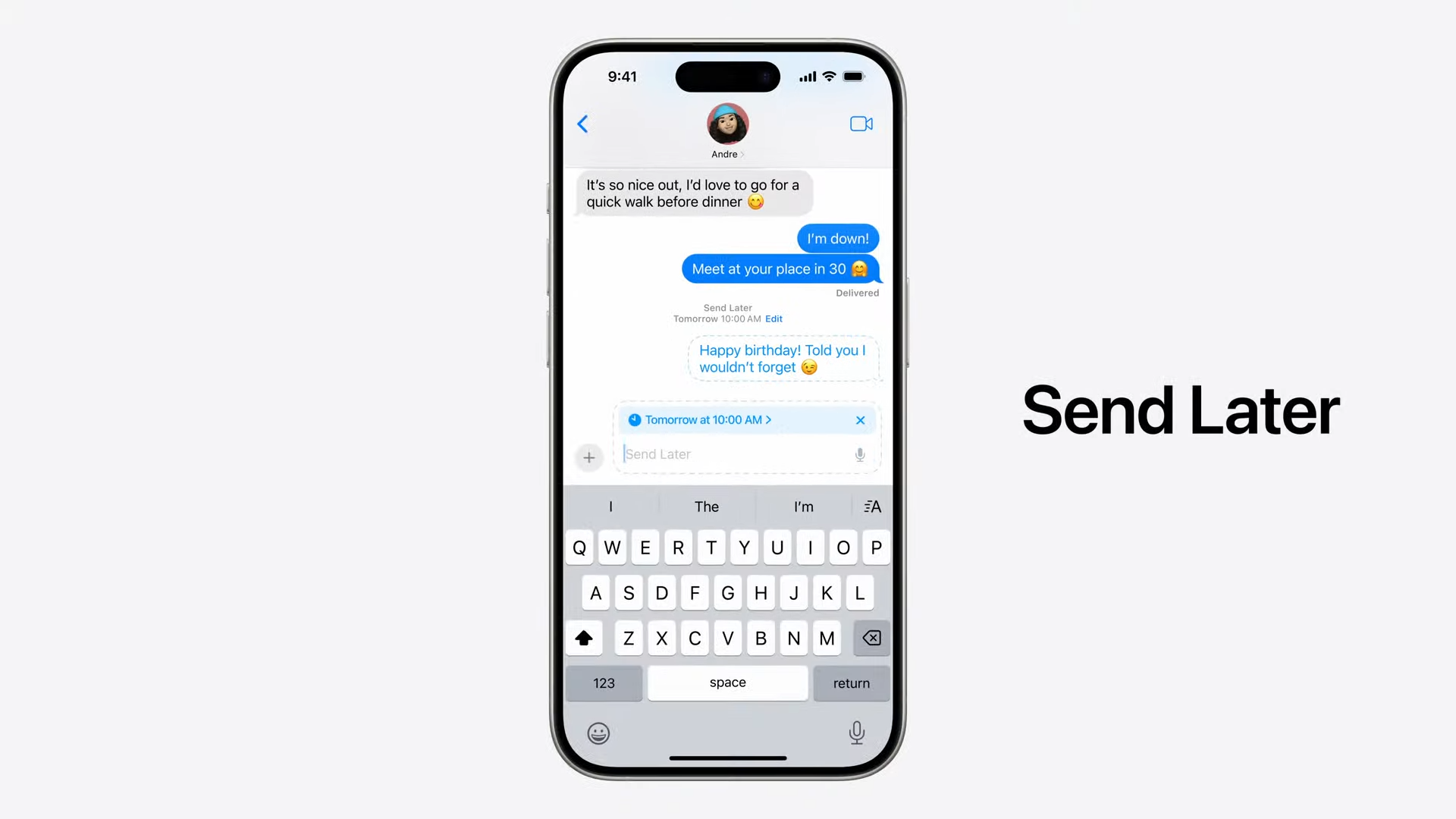
The final big change in iOS 18 is a few updates to the Messages app. Starting with iOS 18, Messages will support RCS messaging for conversations with Android users. This is great news, regardless of whether you use an iPhone or Android phone. It means texts between iPhones and Android phones will have better security, more features, and support for sharing high-quality media. That means your photos will no longer get compressed into grainy oblivion when you send them to an Android phone!
In another big win, Messages will soon allow you to schedule texts so you will no longer need to worry about forgetting to send that birthday text or reminder message. Additionally, iOS 18 will allow you to use any emoji as a tapback reaction in Messages. Apple also added an end-to-end encrypted Messages via Satellite feature for texting when you're off the grid.
Finally, the Messages app is getting some Apple Intelligence features, although it's still up in the air when Apple will release those features. These include generative emojis ("Genmojis") and AI-generated images using the Image Playground feature.







